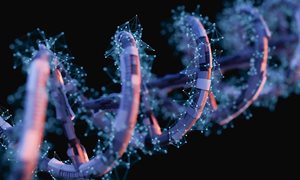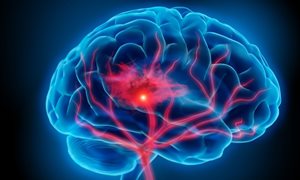19 September 2018
This gene, which acts within the mitochondrial pathway, is probably a relevant gene for patients with movement disorders. While the Nijmegen patients showed features within the ataxia and spasticity spectrum, a back-to-back publication reported on a series of patients with hyperkinetic movement disorders caused by VPS13D mutations.
Link to full publications:
Mutations in VPS13D lead to a new recessive ataxia with spasticity and mitochondrial defects, Annals of neurology.
GDAP2 mutations implicate susceptibility to cellular stress in a new form of cerebellar ataxia, Brain.
 Thanks to close cooperation between Bart van de Warrenburg (Neurology) and Erik-Jan Kamsteeg (Genetics) two new genes involved in movement disorders were identified. The genes are relevant for autosomal recessive cerebellar ataxia. They published their findings with their co-workers in Brain and Annals of Neurology.
Thanks to close cooperation between Bart van de Warrenburg (Neurology) and Erik-Jan Kamsteeg (Genetics) two new genes involved in movement disorders were identified. The genes are relevant for autosomal recessive cerebellar ataxia. They published their findings with their co-workers in Brain and Annals of Neurology.
This gene, which acts within the mitochondrial pathway, is probably a relevant gene for patients with movement disorders. While the Nijmegen patients showed features within the ataxia and spasticity spectrum, a back-to-back publication reported on a series of patients with hyperkinetic movement disorders caused by VPS13D mutations.
Cellular stress
Mutations in the second gene, GDAP2, were identified in a patient with a new ataxia phenotype. A second patient with this rare form of ataxia was found by Belgian partners in the E-rare/H2020 consortium PREPARE. Ilse Eidhof, PhD student in the Drosophila models of brain disorders group led by Annette Schenck, demonstrated that GDAP2 mutations lead to motor defects and reduced lifespan in Drosophila, resembling hallmarks of the human disorder. This work further suggested that GDAP2 pathology may result from altered responses to cellular stress.Link to full publications:
Mutations in VPS13D lead to a new recessive ataxia with spasticity and mitochondrial defects, Annals of neurology.
GDAP2 mutations implicate susceptibility to cellular stress in a new form of cerebellar ataxia, Brain.
Related news items

Surprisingly dominant cause underlying type I congenital defect of glycosylation
21 October 2021 Alex Garanto, Melissa Bärenfänger, Mirian Janssen, and Dirk Lefeber published a new study, identifying a surprisingly dominant genetic cause underlying type I congenital defect of glycosylation with neuromusculoskeletal phenotypes. go to page
Treatment of brain diseases at risk if neuroscientists can no longer conduct their research
5 August 2021 In order to treat brain diseases such as depression, Alzheimer's or ADHD, more research into the brain is needed. go to page
Grants for science communication at Radboudumc
22 April 2021 Scientists at the Radboudumc have received two KNAW grants, each worth 10,000 euros, for science communication. With the new fund, KNAW underlines importance of making science accessible. go to page
UMD Catalist grant for Mohammad Alsady and Federica Conte
24 June 2020They received this award to explore the potential of hiPS-derived skeletal muscle cells as model to investigate muscular pathophysiologic mechanisms in phosphoglucomutase I deficiency.
go to page
Bas Bloem elected as new member of the KNAW
30 April 2020 Bas Bloem is an expert in Parkinson's disease. He is also a healthcare innovator, focused on the integration of scientific research and its clinical applications. We congratulate Bas with this election. go to page
